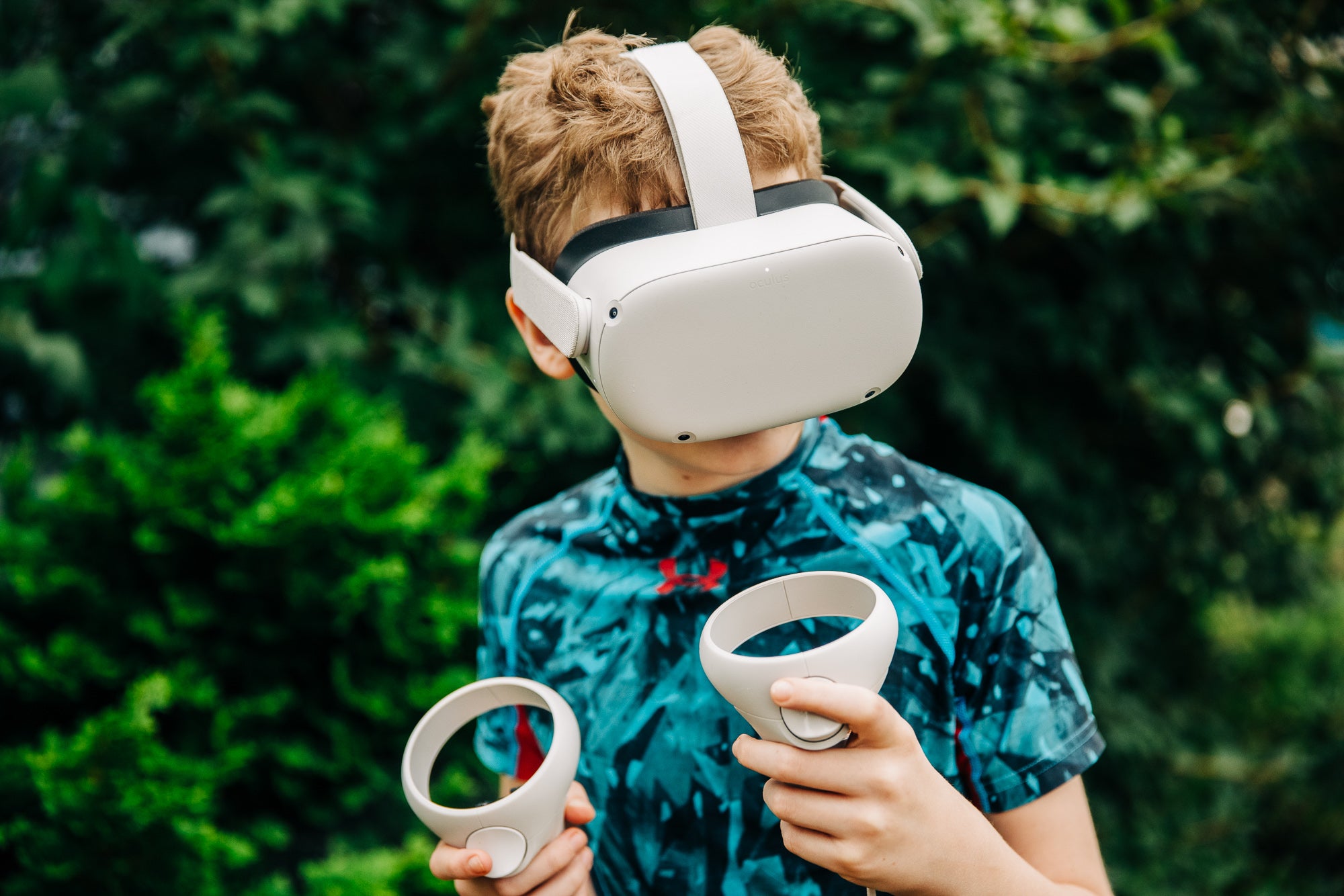
The Oculus Quest 2 gets stellar reviews on Amazon.
(Image courtesy of Popular Science.)
I bought myself an Oculus Quest 2 headset in November, 2021. It's been a thrilling ride ever since - I highly recommend it. (BTW, I have no financial connection to Facebook even though they're just across town.)
With the Covid pandemic still raging (now with Omicron rapidly spreading) I'm not doing any of my usual ballroom dancing or attending live seminars at Stanford. (Prepandemic I'd regularly hear Facebook's AI stars lecture at Stanford.) But, virtual reality is exactly what the doctor ordered.
First, in regard to the headset. You might think, "why buy one now when something better will come along in six months?" Or (as a staid, stodgy adult) , "I prefer real reality to virtual reality. (That answer went out with radio, movies, and tv.)" Or, "what would I do with it; isn't it just a toy (like video games) for kids?"
The Oculus Quest 2 is far and away the best headset for the cost conscious. Facebook's Oculus brand sold ten million of them in 2021! If you're interested (and have pandemic-induced cabin fever) , I whole-heartedly recommend it. (As you know, Facebook recently changed their name to Meta - short for Metaverse. Yes, it partially deflects attention from their outrage-stoking algorithm, but their massive focus on VR is real. They lead the pack of trillion dollar plus heavy-weights that are ramping up their VR offerings including Apple, Microsoft, and Sony.)
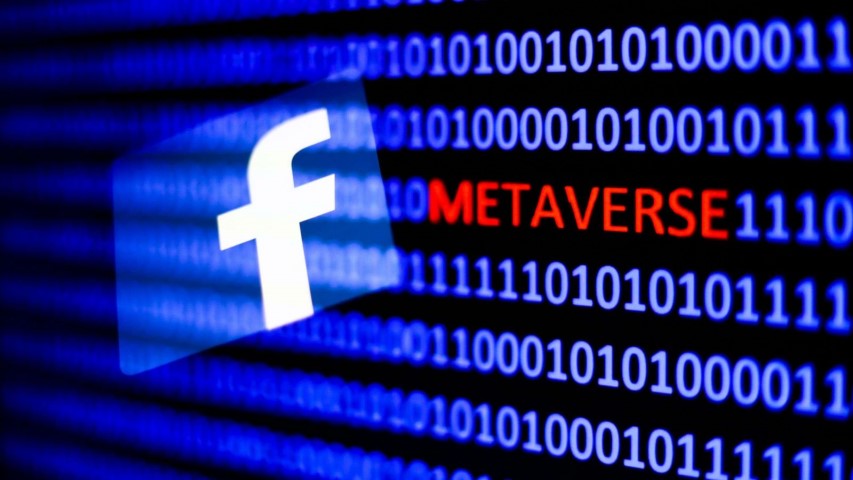
Facebook becomes Meta; ⅓ PR but ⅔ genuine shift of focus to VR
I held off buying my Quest 2 until after Facebook's big annual Connect conference for its developer community in November, 2021. There was speculation that they might announce a successor headset, but that didn't happen. (Their Project Cambria is apt to be a high end headset for well healed enthusiasts not a replacement for the Quest 2. It will be a Cadillac not a VW bug for the masses.)
The consensus is that Facebook incurs a loss on every Quest 2 that it sells. I'm guessing that a teardown of the Quest 2 with an itemization of the cost of its parts would confirm that. It's a helluva lot of hardware for $300. Here it is on Amazon (note the high praise from users.)
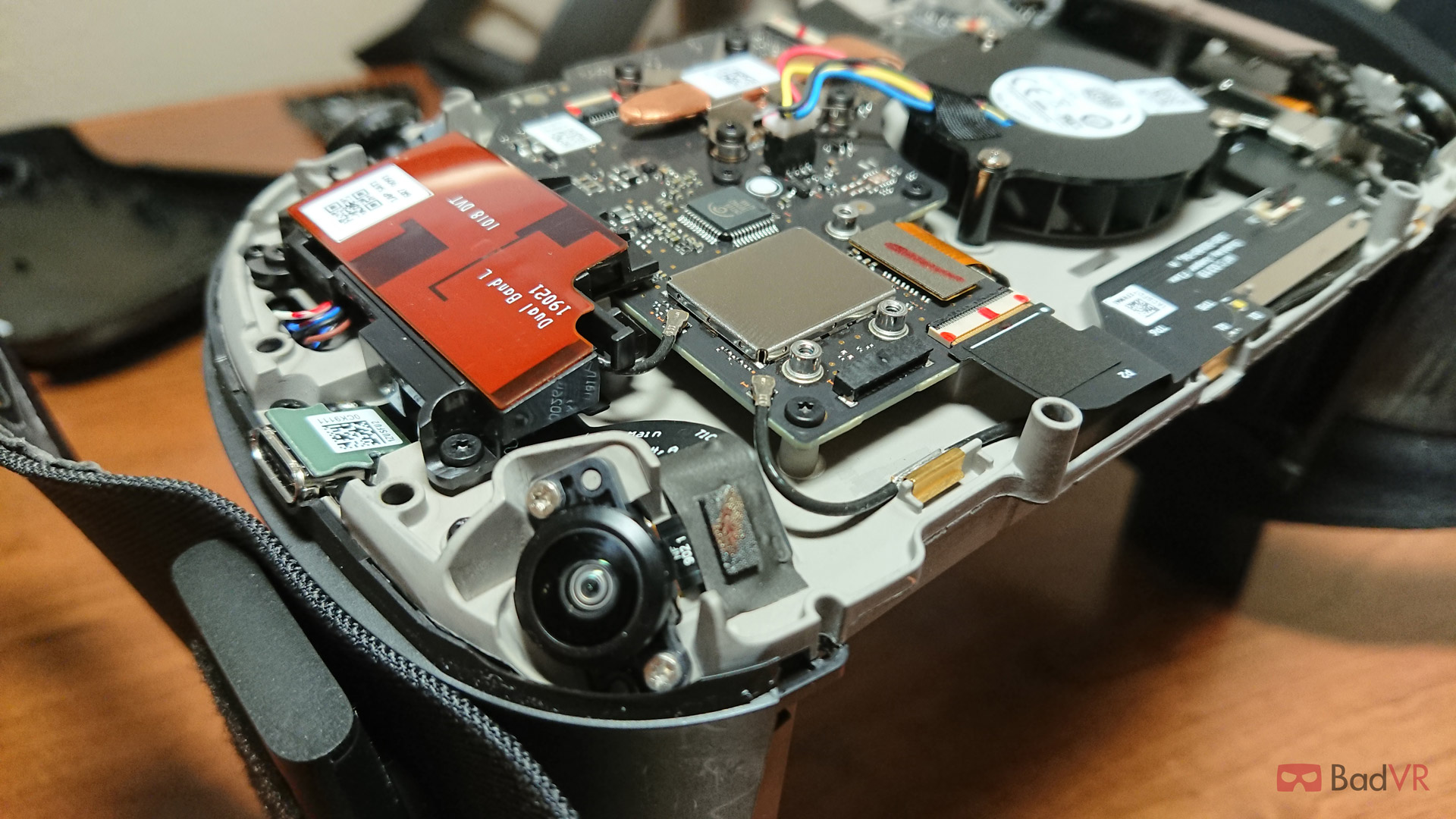
The Quest 2 is a loss leader. There will be other headsets but none will pack the punch of the Q2 for only $300.
Facebook has plowed billions of dollars into its VR effort. Starting in 2014, it bought the Oculus technology from its developer (the well-named, then age 22) Palmer Luckey for three billion dollars. Next, it poured in about five billion per year into VR. That effort has involved thousands of its engineers. Again, are they making money on your $300 buy. No way! They're giving it away.
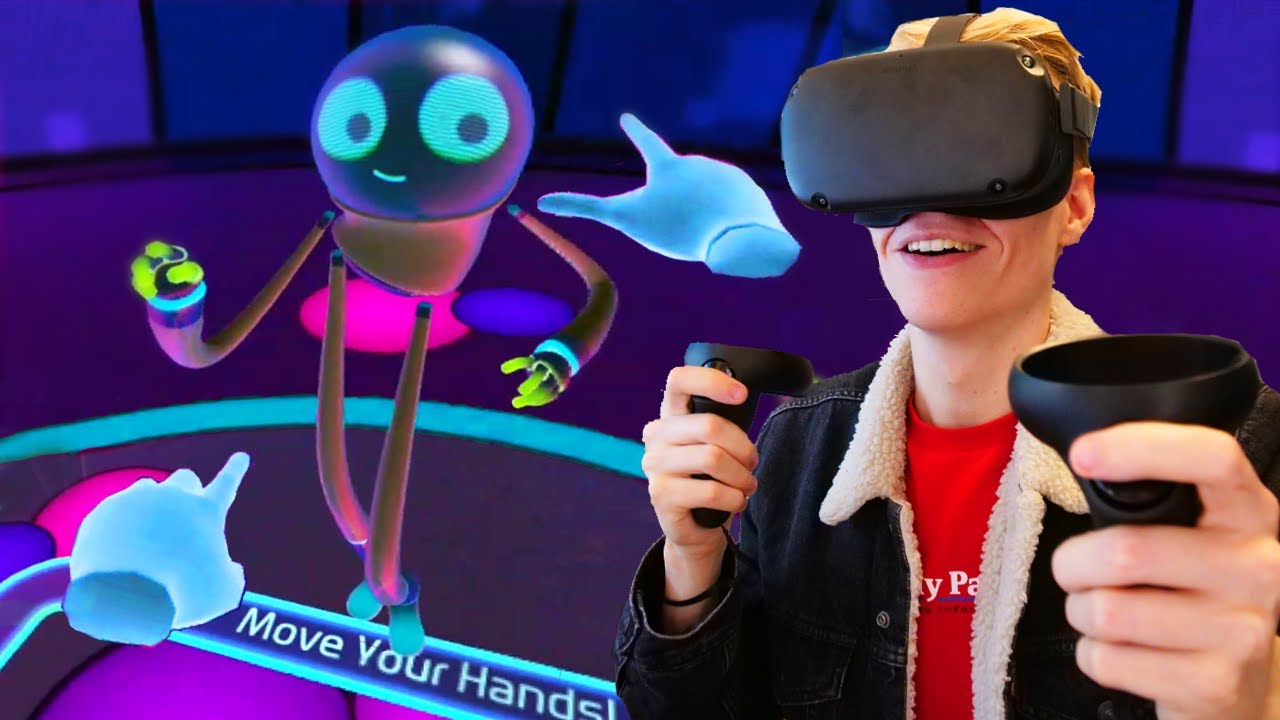
Dancing while holding hands with the little space alien is a delight.
(That's video blogger Nathie — I'm fifty years older.)
This game should be everyone's first experience with the Quest 2. It's free and it's a doozy. It's an ideal showcase for the headset's capabilities. It also nicely teaches you how to use the buttons and triggers on the right and left controllers. First Steps has it all: synthesizing objects using matter compilers (First Contact is another similar freebie), gorgeous, immersive 3d environments, and even dancing with a partner. Put the headset on, try First Steps, and you'll be a believer.
OK, you're a stodgy adult. What will you do with your VR headset? Here's my experience so far (after about two months.)
My favorite game (judging by my use and satisfaction) has been ping pong in VR. There are at least two ping pong games that are sold. The bloggers consistently give the kudos to the game ELEVEN, which sells for $20 in the Oculus Store. (You directly download games from there into the headset; it's easy.) I had to think about it when its competitor Racket Fury went on sale for $12 (tempting but a "no go.") VR ping pong is all about simulating real world physics and the devs who created Eleven got it down pat. Unlike their competitors, it's stunningly realistic. There are plenty of YouTubes of the champs going at it at top speed using Eleven.
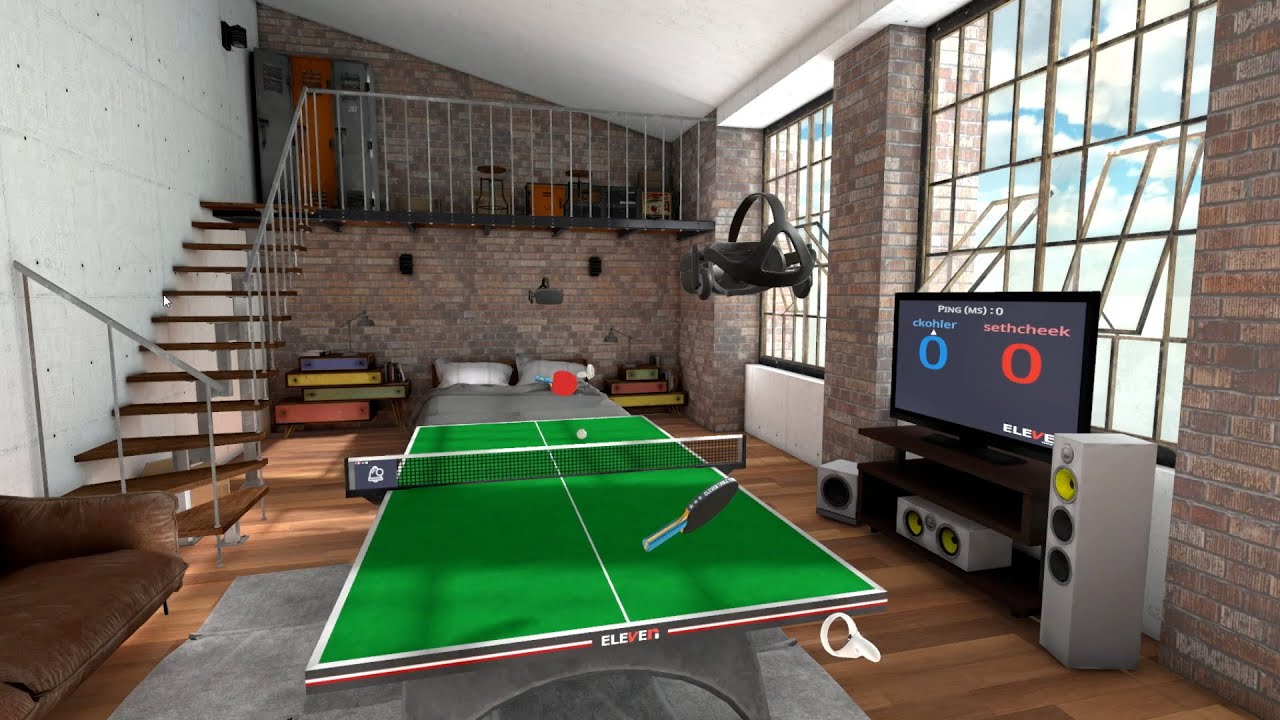
half the fun is chatting with other players around the globe
I played a lot of ping pong from age 8 to 14 (see my childhood pix here.) But almost none in the past sixty years - until now. What I really enjoy is chatting with my opponents as we casually rally the ball. So much fun. My opponents have been random people who show up on the other side of the table.
I'll typically play a casual session late at night. I had gotten used to seeing instantaneous physics when I play with opponents in the United States. I suspected something was up when I was experiencing perhaps half second delays with my last two adversaries. Well, it turns out that one, a Frenchman, was playing on Reunion Island (I had to look it up - that's in the Seychelles) and the last was a young gal in Singapore. Both were delightful conversationalists.
These serendipitous meetings remind me of my youthful experiences as a ham radio operator ("whiskey alpha six oboe baker lewis") in the 1950's chatting around the globe. What fun!
Cooped up due to the pandemic, I'm constantly looking for entertaining ways to exercise indoors during the winter. (During the summer I love hiking and bike riding.) My "traditional" method of dancing indoors when it's raining is to turn on YouTube and follow dance instructors or similar workouts. Still not a bad option, but ...
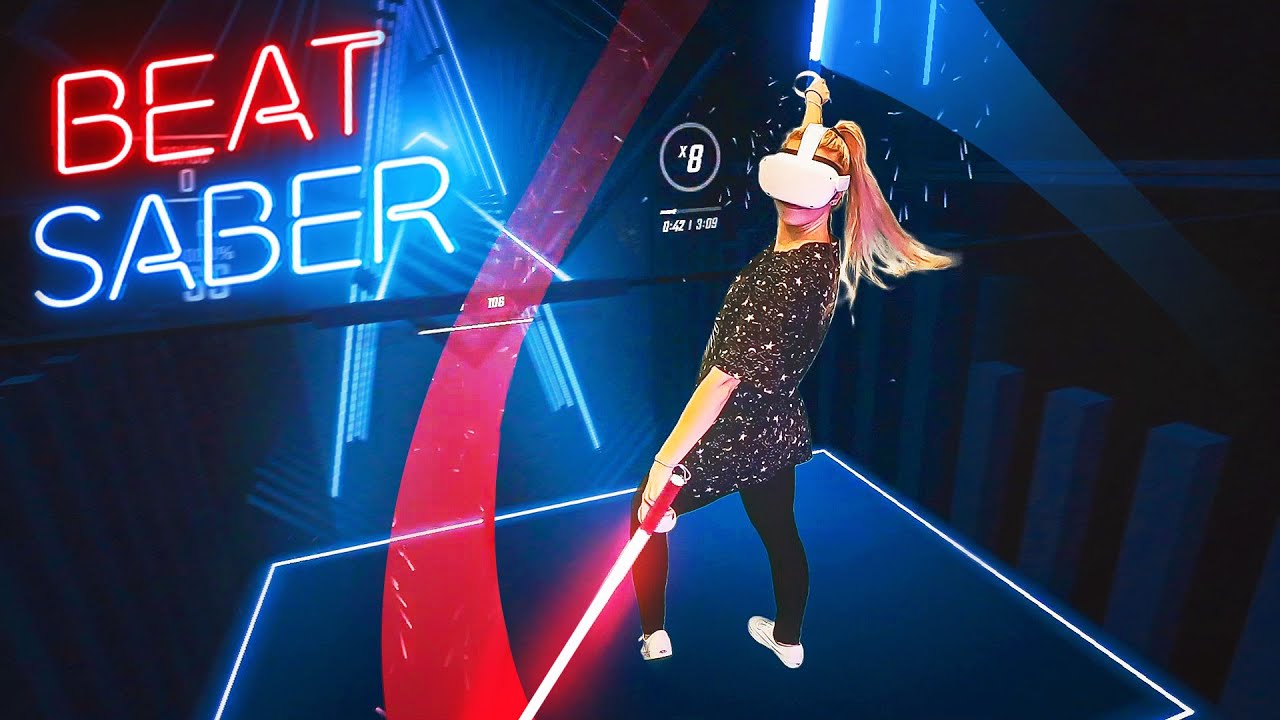
Fitness games are a major category in VR. A popular favorite seems to be Beat Saber. You swing Star Wars style light sabers in your right and left hands (actually just your Quest controllers) as blocks are flying at you that you have to slice with the sabers. Adding to the fun are obstacles that you need to dodge.
I enjoyed the game for a week before Thanksgiving. But then I thought, "maybe it'll be on sale over the cyber holidays (less fattening than Thanksgiving)" so I returned it and got my $30 back. Well, it turns out Beat Saber never goes on sale. Check it out on YouTube where it's well represented by the video bloggers, eg here OtterWordly rocks Smooth Criminal. I'll probably buy it again. It was fun. But meanwhile, a competitor turned up ...
When Beat Saber's competitor Synth Riders went on sale for $16, I snapped it up. It also seemed to deliver a more challenging workout involving more movement.
I'm still settling into Synth Riders. I recommend it. Fast-paced music (there is some "non-modern, non-cyber music" for us older adults) with a fast moving game similar to Beat Saber.
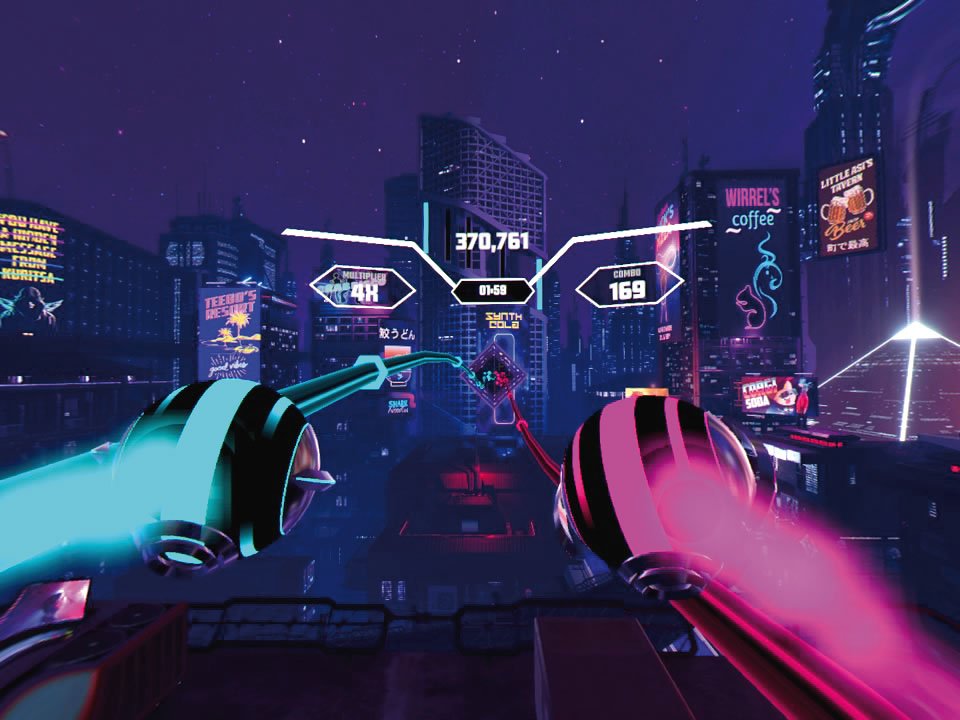
a frame from Synth Riders — headset required for immersion
I'm slowly discovering how the game developers (including Oculus) make their money. It seems to be via expansion packs. For example, I just bought a collection of added tunes and backgrounds for Synth Riders. (This genre of music is more my son's thing; I personally checked out after Bach's Toccata and Fugue in D Minor - a crowd favorite three hundred years ago.)
I had never heard of the group Muse until now. (Some of their YouTubes have a mere 100 million+ hits.) Their "experience" for Synth Riders that accompanies their tune Starlight is absolutely magical: Prepare to Be Mesmerized - Starlight danced by OtterWorldly. This is psychedelics without the side effects. This one gets an A+ . And here's another A+ Synth Riders experience — Algorithm by Muse.

Real reality — a universe filled with quantum fields
At the end of Muses's Algorithm is the tag line "we are caged in simulations." Yes! I explore that here: Conscious Driverless Cars. Real reality cannot ever be experienced by anyone, any organism, nor any machine. Real reality consists of a universe filled with quantum fields as laid out in quantum electrodynamics. What each of us experiences are the shadows in Plato's Cave. Muse conveys the requisite awe.
BTW, I've only tried these games on "easy" or at most "normal" modes. It's quite challenging and a real sweat. (The "kids" turn up the juice to hyper mode.) But I've got to think this is good for preserving/ improving senior brains. (This was the role traditionally played by crossword puzzles.)
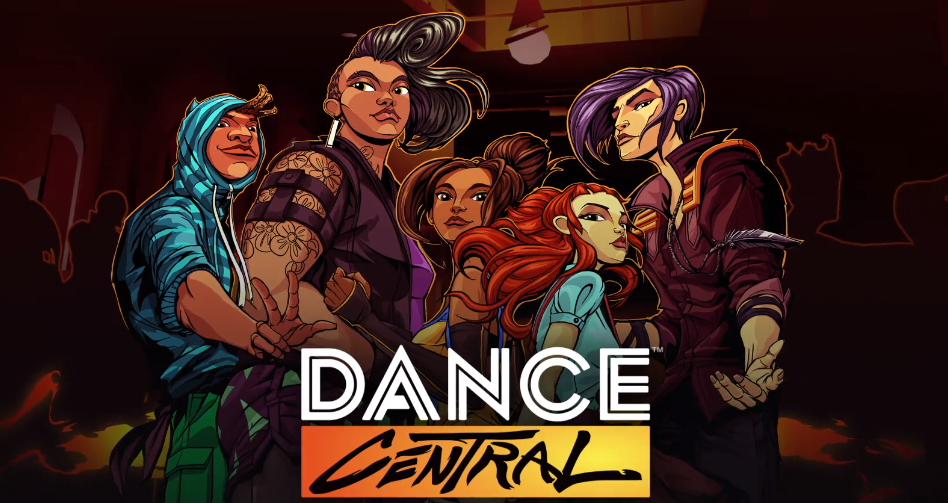
Since I've danced all my life, I really looked forward to Dance Central. After a month I still use it every couple of days. It has four AI characters that instruct you in club dancing (basically, hip hop). After a couple of weeks you've been there, done that. But the action shifts to the Lounge where other human dancers show up to compete (or at least, dance side by side with) you. In this mode you are awarded points for copying the moves of the AI performer. There are about forty or so pop songs choreographed and taught by the AI's. I'd recommend this game to dancers, but I'm guessing your interest may tail off after a few months.
There are subscription based fitness apps (eg, FitXR and Supernatural) that keep things fresh with a constant supply of new routines. But, I haven't tried those.
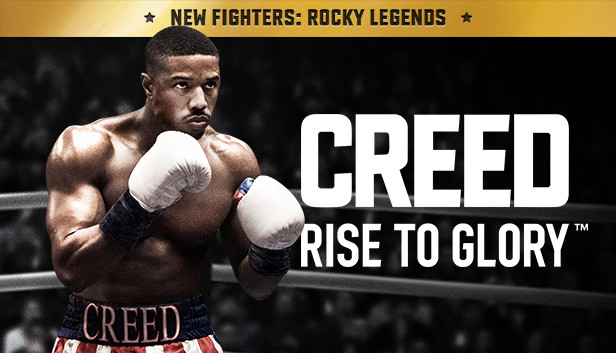
I initially bought Creed: Rise to Glory when it went on sale for $18. Creed is based on the Rocky movies. (Poor kid from the slums of Philadelphia (immortalized by Sylvester Stallone) rises through sheer grit to become a championship boxer.) I'm a great fan of grit (that's Elon Musk's secret ingredient.) The game is well done, but boxing is a real sweat. You never burn calories like you do when you're fighting for your life in the ring. I can take about one, maybe two, rounds, before I explode. The music and boxing arenas are fun, but it takes several seconds for them to boot up - a disadvantage not shared by ...
Thrill of the Fight - another boxing app that I bought for only $10 (full price) a week ago. It's like a stripped down version of Creed (no movie background or inspiring music), but a well done boxing app. Again, I can last about two rounds. I'm told that the game takes account of your strength, so that non-boxers stand a chance. Here, Viking Princess shares her VR boxing tips.
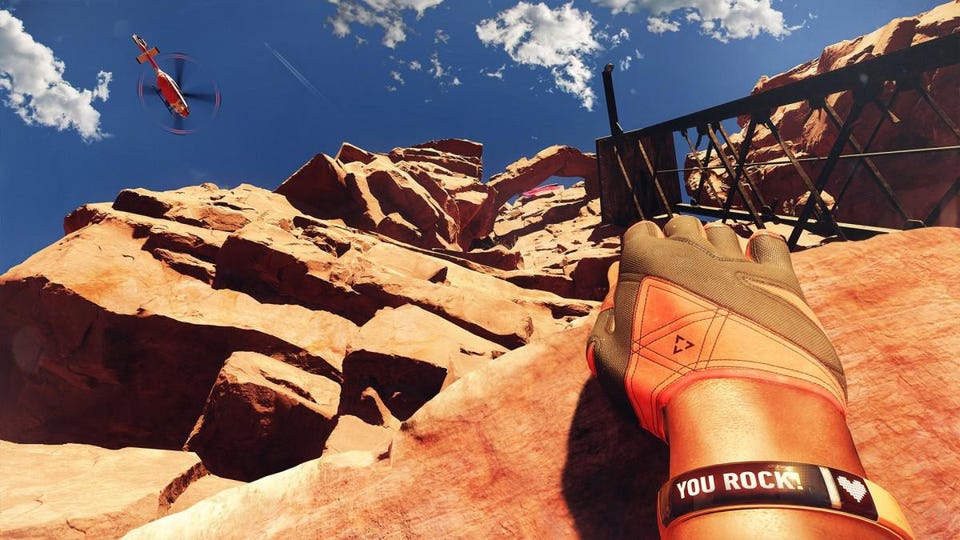
As a former rock climber and mountaineer I had high hopes for this one. So, when The Climb and its successor The Climb 2 went on sale for $36 for the pair I jumped at it. I enjoyed doing an "easy" climb in The Climb 2 (it wasn't!), but then for a couple of weeks I was not able to start up either of these programs. They said "cannot connect to server." There is really no reason why stand-alone programs like these need to connect to a server. (After all, you never needed a server to play Donkey Kong or Star Wars.) WTH? I complained to Oculus Support (that's what I did on New Year's Eve), and they refunded my money. The (well named) CryTek, the studio that developed these apps seems to be undergoing a management shakeup. So, perhaps that's why they can't attend to this crucial issue. So, although these games are popular, I can't recommend them until they clean up their act. Let me know, CryTek.
I'm getting into this other climbing game. Stride is a parkour game that involves running, jumping, sliding, and climbing while being shot at. It's tough but it has a well thought out, systematic tutorial. I'll report back later.
Rec Room is one of several free VR experiences that Oculus provides. Rec Room is probably similar to what elementary school teachers experience at recess. Hordes of kids roving around, playing tag, throwing virtual objects at one another.
My first time in it I was lucky that a ten year old boy adopted me and showed me around. Without his help it would have been overwhelming. The main room branches off into many separate game environments. This boy loved a particular parkour type game. I struggled to keep up with him. (I worried about what his parents would think. But an hour into it, I'm guessing they were probably grateful to have a surrogate grandparent providing watchful babysitting.)
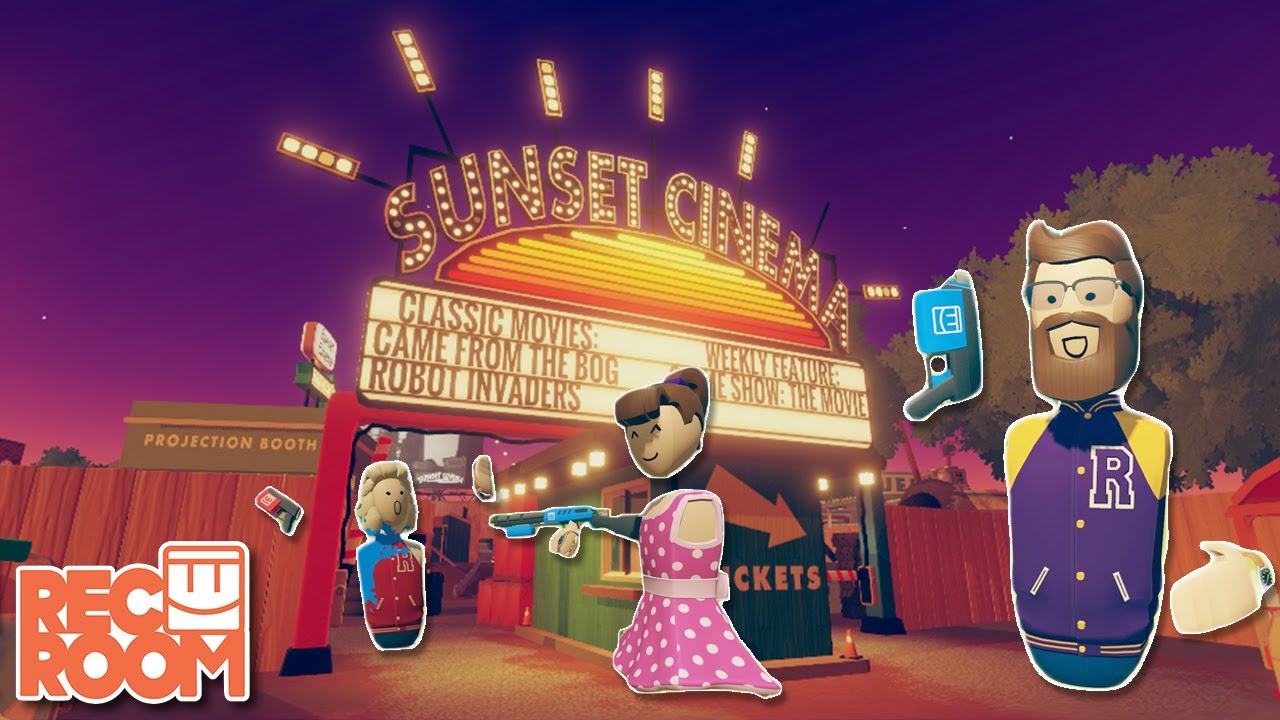
I loved the setting in Paintball: a 50's style drive in, a 50's diner, and cars of the era.
My son, Sean, enjoys a sideroom in Rec Room called Paintball. This emulation of real life paintball is way beyond my skill level. I'd get wiped out immediately without his help. But, this is the metier of his generation having grown up with video games. BTW, I bought a first person shooter game called Onward. It turns out it's popular with active duty, retired, and wannabe military. I get killed in under a minute.
If Rec Room is for the elementary school crowd and up, VRChat is inhabited by age 15 to 25 males. Lots of naughty language and behavior. During my one visit there I was lucky to find a guide who helped me survive in Murder Mystery 4, a Sherlock Holmes style mystery game with an unknown killer on the loose.
That's it for now (more later.) The bottom line: if you can find a friend with a Quest 2, seek them out and try it. You'll be blown away. (Here are some seniors trying VR for the first time.)
initial publication: January, 2022.
I welcome emailed comments on all my essays. With your permission, excerpts may be posted here. Send comments to bob AT bobblum DOT com (usual syntax.)
7 Jan 2022: Electro-optics engineer Dennis Hancock shares conversations with his buddy, Bernard Kress, the inventor of Google Glass, which flopped commercially. But Kress then went on to Microsoft (Dennis writes) where he designed the Hololens. (MSFT's Hololens was the first headset I personally experienced about a decade ago.)
Dennis Hancock continues: Last year the Army gave Microsoft a multi-billion dollar contract to build AR Hololenses for use on the combat field. But last I heard, the government cancelled the project because (no surprise here) the technology just wasn't up to snuff on ruggedness, field of view, and maybe just as importantly, brightness.
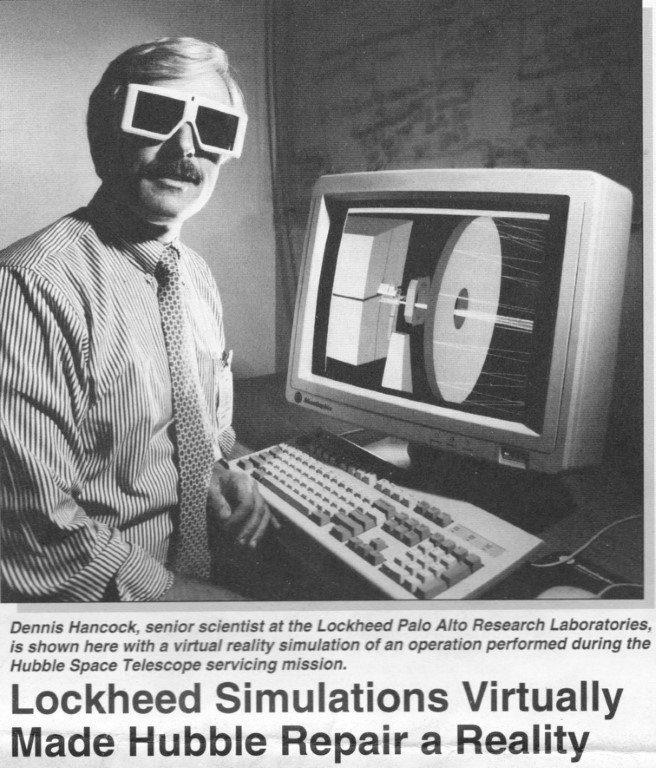
My friend Dennis Hancock, an electro-optics engineer and early pioneer in VR
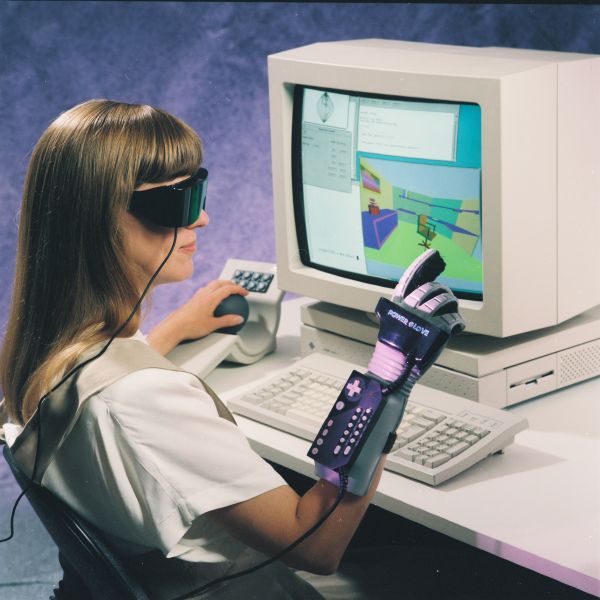
In the 1980s my ex worked for Sense8, a pioneering VR shop
9 Jan 2022: Prepandemic in April 2018 I (RLB) attended the "immersively captivating" SCIEN VR/AR in Medicine Conference at Stanford, organized by professor Joyce Farrell. There were several "bleeding edge" exhibitors, eg Synaptive Medical's Neurosurgery Assistant.
9 Jan 2022: Here is OtterWorldly exhibiting other-worldly skill at Beat Saber: Overkill by RIOT (Expert+ Level).
15 Jan 2022: I read this story about VR in 1974: The Girl Who Was Plugged In by James Tiptree, Jr. Here is Tiptree (a woman.) The story is ultra-prescient and among the best ever written (in any genre.)
The term metaverse originated in Neal Stephenson's superb 1994 novel Snow Crash — full text is here.
22 June 2022: Facebook founder Mark Zuckerberg has recently done a series of interviews showing work being done by Meta's Reality Labs Research (their R&D division for VR.) The best, albeit the longest of these interviews, is by Norm Chan of Adam Savage's Tested. Here, Mark and his colleagues present prototypes that each explore different aspects of future VR headsets on the road to truly immersive virtual reality. Job 1 is retina-level, high pixel density up to 60 pixels per degree. This is great for reading text at 20/20 clarity, meters away. Job 2 is accurate and fast head and eye tracking. If this is achieved, then foveated viewing become possible — a great cheat; you only need to render at high-res what the user is actually looking at. Job 3 is making the lenses smaller and lighter. This involves upgrading from the Fresnel lenses used in the Quest 2 and instead using pancake lenses, or, even smaller, holographic pancake lenses. And finally, Job 4 is achieving high dynamic range: the ability to render dim scenes as well as those in bright daylight. Combining all this into one inexpensive, low cost device will take at least five years. This CNET presentation on the Holocake 2 and Mirror Lake Prototype VR Headsets shows some of the highlights in only 5 minutes.
25 Feb 2024: This excellent article Meta Continues to Operate at a Loss on Quest 3 details the cost of all the materials that go into making the Quest 3. The piece also shows the bill of materials for the Quest 2 (which I still use and love.) Meta loses money on both. I applaud Meta's continuing belief in and investment in VR.
I welcome emailed comments on all my essays. With your permission, excerpts may be posted here. Send comments to bob AT bobblum DOT com (usual syntax.)
Related Essays
Self-Driving Cars: The Future of Autonomy